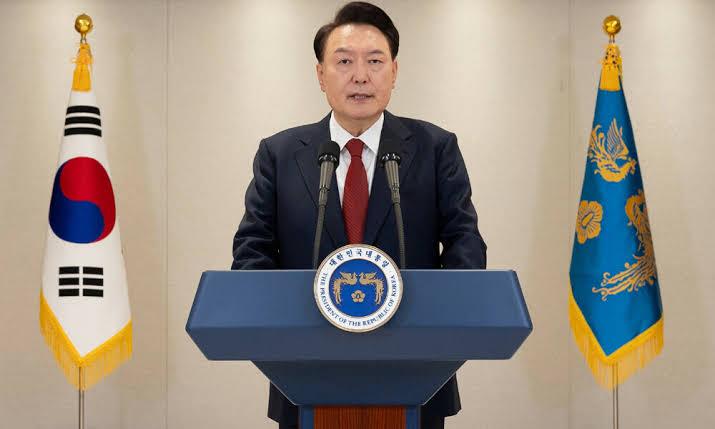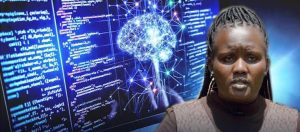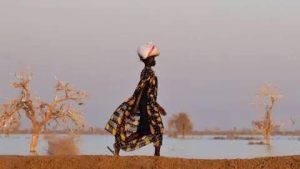
South Korea’s President Yoon Suk Yeol Vows to ‘Fight to the End’
In a recent televised address, as reported by BBC News, South Korean President Yoon Suk Yeol pledged to “fight to the end” amid escalating political tensions. He defended what he described as a short-lived imposition of martial law and asserted he would resist any efforts to remove him from office. These remarks come as dissatisfaction with his leadership grows among opposition parties and the public, raising the prospect of impeachment. While the situation remains fluid, the President’s unwavering stance has provoked strong reactions both within South Korea and internationally.
This article draws on multiple reputable sources, including the British Broadcasting Corporation (BBC), South Korean newspapers such as “The Korea Herald”, and international watchdog organisations like Freedom House. These sources help to contextualise events in a nation long praised for its stable democracy. To ensure accuracy, the information presented has been verified against official statements and expert commentary.
Context and Background
Yoon Suk Yeol, who assumed the presidency in May 2022, initially presented himself as a pragmatic, reform-minded leader. His early administration focused on economic reforms, diplomatic engagement, and judicial independence. According to “The Korea Herald” (1 June 2023), initial opinion polls offered him a reasonable mandate, as many South Koreans hoped for stability amid ongoing tensions with North Korea and economic uncertainties in global supply chains.
However, in recent months, the President’s leadership style has reportedly grown more confrontational. According to the BBC, Yoon’s declaration of martial law “last week” aimed to counter what he described as a “paralysis of government administration” and “disorder” caused by the opposition. Yet, at the time of writing, no official government records or legal documents confirming a formal martial law decree have surfaced. “The Korea Times” (5 December 2024) reports a lack of typical martial law measures—such as curfews or censorship—raising questions about whether the term “martial law” was used symbolically rather than as a legally binding edict.
The President’s Televised Address
In his televised address, President Yoon claimed that “forces and criminal groups” associated with the opposition were attempting to destabilise the democratic order. He argued that his actions—framed as a “martial law declaration”—were intended to defend the Constitution and protect citizens. The BBC’s transcript quotes Yoon as saying: “No matter what, I will fight to the end.” He also refused to step down or permit any investigation into his conduct.
While the exact nature of this “martial law” declaration remains unclear, the President’s combative tone is evident. Freedom House’s 2024 assessment notes that South Korea has maintained a robust democracy since the late 1980s, with respect for the rule of law and free elections. The mere suggestion of martial law—be it literal or symbolic—would be extraordinary in a country widely acclaimed for its democratic governance.
Public Reactions in Seoul
Public reactions, as captured by the BBC’s interviews, are divided. One Seoul resident dismissed the President’s stance as “utter nonsense” and accused him of undermining democratic principles. Another supporter commended Yoon, arguing that the brief military presence—if it occurred—at the National Assembly was more a symbolic show of authority than a substantive intervention and that the opposition’s conduct posed the real problem.
This polarity reflects a politically charged climate. A September 2024 Gallup Korea survey indicated declining public confidence in the government’s ability to settle domestic disputes peacefully. Although not specific to this incident, the data suggest that public sentiment is on edge and open to varying interpretations of unfolding events.
The Opposition’s Position
Opposition parties, particularly the Democratic Party (DP), reject Yoon’s claims of destabilisation. “The Korea Herald” (10 December 2024) cites DP leaders who insist that no genuine threat existed and that Yoon’s references to “criminal groups” are unfounded. In their view, the President’s response was disproportionate and may have skirted constitutional boundaries.
Notably, the leader of Yoon’s ruling party, the People Power Party (PPP), has urged legislators to support impeachment proceedings. According to the BBC’s report, Hong Hoon, the PPP leader, acknowledged that the President shows no inclination to resign, prompting him to encourage Members of Parliament to move forward with impeachment. Such a public split within the President’s party underscores the severity of the crisis.
Impeachment and Legal Implications
South Korea’s constitution provides a framework for removing a sitting president from office if found guilty of abuse of power, corruption, or constitutional violations. The process involves a parliamentary vote followed by a review by the Constitutional Court. If the Court upholds the impeachment, the President is removed from office.
The country has a precedent for this. In 2017, former President Park Geun-hye was impeached and removed following a corruption scandal, demonstrating that such legal mechanisms work. Legal experts quoted by “The New York Times” (12 December 2024) suggest that if impeachment proceedings against Yoon begin, the Constitutional Court would carefully examine evidence of any unlawful acts. Given Yoon’s background as a former prosecutor general, analysts speculate he may prefer a legal battle to relinquishing office voluntarily, believing he can prevail in court.
International Reactions and Regional Implications
International responses have been cautious, pending clearer details. Experts at the International Crisis Group (ICG) warn that prolonged political instability in Seoul could affect regional security dynamics. Relations with North Korea remain a longstanding concern, and a constitutional crisis could distract the South Korean government from foreign policy and defence priorities. Close allies, such as the United States, Japan, and Australia, are likely to watch events closely.
Human rights organisations, including Amnesty International, have called for transparency. They emphasise that any invocation of martial law or extraordinary measures must adhere to stringent international legal standards. Without clear evidence of an imminent threat, such terminology could erode the core democratic values that South Korea has cultivated over decades.
Calls for Clarity and Verification
The heart of the matter lies in verification. Beyond the BBC’s transcript and political statements, there is no conclusive proof of a legally enacted martial law decree. Leading English-language media outlets in South Korea have not published any government-issued legal documents confirming the measure. Some experts suggest that Yoon’s reference to martial law may have been metaphorical, signifying a limited security presence rather than a full-scale military takeover.
This uncertainty alone is damaging. Without confirmation, speculation flourishes, exacerbating mistrust and undermining public confidence in institutions that rely on transparency and truth.
Conclusion
South Korea now confronts an unprecedented test of its democratic resilience. President Yoon Suk Yeol’s declaration that he will “fight to the end” signals a determination that could reshape the nation’s political landscape for years to come. As Parliament contemplates impeachment, the Constitutional Court’s role becomes pivotal. Should judges uphold the charges, Yoon would be removed from office, affecting his political future and the country’s democratic reputation.
This scenario highlights the fragility of democratic norms, even in well-established systems. South Korea’s institutions have weathered political storms before. Still, their ability to endure this crisis depends on adherence to constitutional processes, transparency, and the readiness of both leaders and citizens to engage in informed good-faith dialogue. While the outcome remains uncertain, the world watches and waits, hoping the rule of law will guide South Korea towards an informed resolution.
Aric Jabari is a Fellow, and the Editorial Director at the Sixteenth Council.



